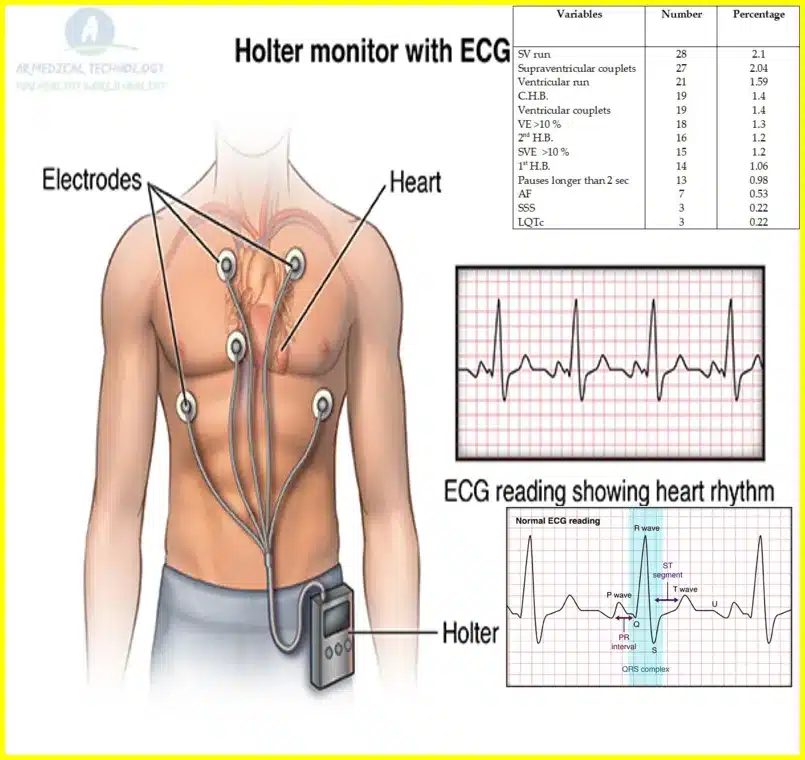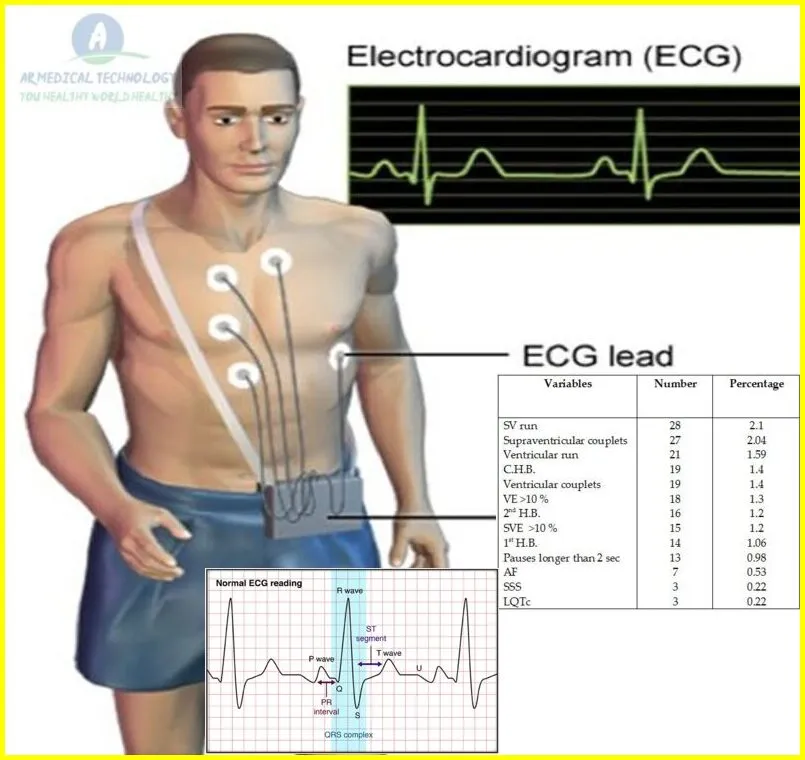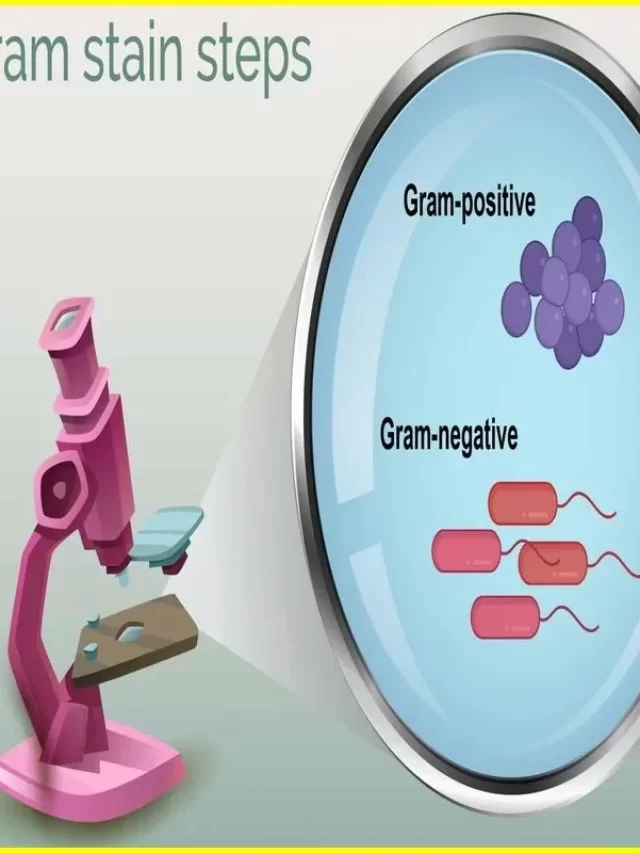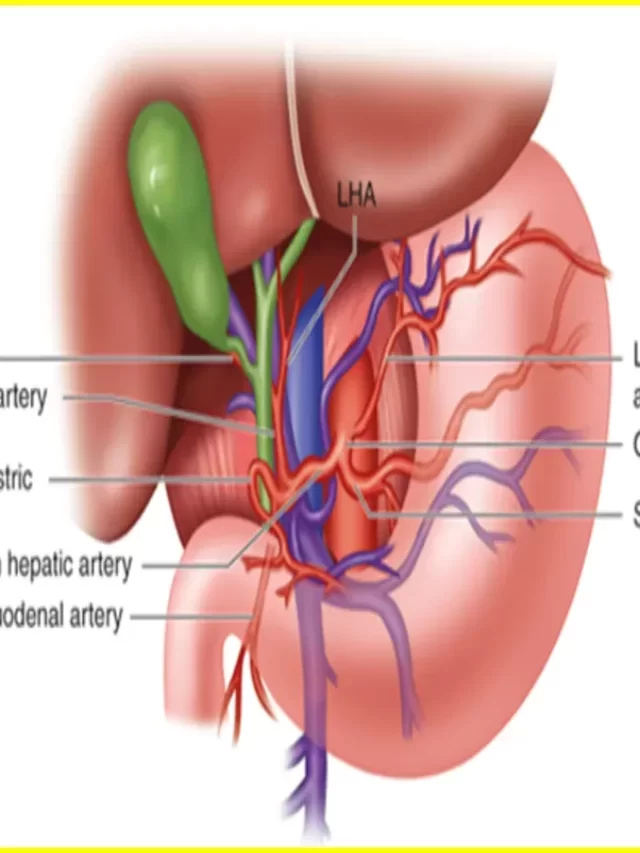
abnormal holter monitor results
Abnormal Holter Monitor Results
Are you feeling worried about getting abnormal Holter monitor results? Holter monitoring is a common procedure used to diagnose heart conditions, but interpreting the results can be confusing and overwhelming. In this blog post, we’ll go over the basics of a Holter monitor and explore what it means when your results are abnormal. Everything you need to know about abnormal Holter monitor results.
What is a Holter Monitor?
A Holter monitor is a battery-powered portable device that records the activity of your heart for an extended period of time, usually 24 to 48 hours. You wear it as you go about your normal activities.
The device monitors your heart’s electrical activity and records it on a small cassette tape or memory card. Your doctor can review the recording to check for abnormal heart rhythms.
Holter monitoring can be used to diagnose irregular heartbeats such as atrial fibrillation, supraventricular tachycardia (SVT), and other arrhythmias. It can also be used to evaluate the effectiveness of drugs used to treat these conditions.
Article About:- Health & fitness
Article About:- Medical Technology
Article About:- Sports

How Does it Work?
A Holter monitor is a small, portable device that you wear for 24 to 48 hours. It continuously records the electrical activity of your heart. The test is non-invasive and does not require any preparation.
Abnormal Holter monitor results may indicate an arrhythmia (abnormal heart rhythm), which can be serious. If you have abnormal results, your doctor will recommend additional testing to confirm the diagnosis and develop a treatment plan.
Abnormal Results from a Holter Monitor Test
Holter monitor test is usually done to check for abnormal heartbeat. However, sometimes the results of a Holter monitor test can be abnormal even when there is no heart problem. This can happen if the electrodes used to record your heart’s electrical activity are not placed properly. If this happens, you may need to have another Holter monitor test.
Causes of Abnormal Results
There are many possible reasons for abnormal Holter monitor results. Some common causes include electrical abnormalities of the heart, such as arrhythmias, and changes in the shape or function of the heart chambers.
Other possible causes include medications that affect heart rate or rhythm, dehydration, and external factors such as stress or exercise. If you have abnormal Holter monitor results, it is important to follow-up with your doctor to determine the cause and develop a treatment plan.
Treatment for Abnormal Results
If you have abnormal holter monitor results, your doctor may recommend one or more of the following treatments:
- Lifestyle changes: Making changes to your diet and exercise routine can often help to improve heart health and reduce the risk of arrhythmias.
- Medications: There are a variety of medications that can be used to treat arrhythmias, depending on the specific condition.
- Cardiac ablation: This procedure involves destroying the abnormal tissue in the heart that is causing the arrhythmia. It is usually performed using a catheter (thin tube) inserted through a vein in the leg.
- Implantable cardioverter defibrillator (ICD): This device is implanted under the skin, usually in the chest area. It monitors the heart rhythm and delivers an electric shock to the heart if an abnormality is detected.
Follow Up Tests and Care after an Abnormal Holter Monitor Result
If your Holter monitor results are abnormal, your doctor will recommend additional tests and/or close monitoring. Further testing may include an electrocardiogram (EKG) or echocardiogram. Depending on the findings, you may be referred to a cardiologist for specialist care.
It is important to follow-up with your doctor after an abnormal Holter monitor result, even if you feel well. Your doctor can help you determine the best course of action and provide the care you need to keep your heart healthy.

Abnormal Holter Monitor Results Summery
Abnormal Holter monitor results can be of concern, but they are often due to normal irregularities in heart rhythm. With further investigation and proper care, these issues can often be fixed. If you have abnormal readings on your Holter monitor it is important to seek medical advice so that any underlying problems can be diagnosed and treated quickly. Doing so will ensure that you stay healthy and avoid serious complications later on.
What abnormalities can a Holter monitor detect?

A Holter monitor can find the cause of: Arrhythmia (heart rhythm abnormalities). Heart palpitations.
Your provider can also use a cardiac monitor to determine how well your:
Heart is getting oxygen.
Heart medications are working.
Pacemaker is working.
What is normal Holter report?

A normal Holter monitor result will not show any significant changes in your heart rhythm. Many people (in fact most people) have occasional, benign types of arrhythmia that do not cause any symptoms.
Can Holter detect blockage?

Some people may have a condition like heart block which can cause slow heart rate, dizziness and fainting. Some people may have an uncontrolled fast heart rate from atrial fibrillation or other forms of arrhythmia. Holter monitors can be used to diagnose and characterize these disorders.
Does heart failure show up on Holter monitor?

Electrocardiographic parameters based on ambulatory Holter monitoring have been documented as independent risk predictors of total mortality and progression of heart failure.
What is a negative Holter monitor?

In fact, many physicians report nondiagnostic rates as high as 85%. Most often, this is because symptoms may not reappear during the 24 to 48 hours during which the Holter is monitoring the patient’s heart rhythm. The non-diagnostic Holter is also known as a benign Holter or negative Holter.
Is Holter better than ECG?

If you have abnormal arrhythmias, an ECG may not detect them. A Holter monitor may be able to detect irregular heart rhythms that an ECG missed. If standard Holter monitoring does not capture the irregular heartbeat, a device called an event monitor may be recommended to record the heartbeat over several weeks.
What is borderline Holter?

A borderline ECG is the term used when there is an element of irregularity in the ECG result. ECG data is read by doctors using a series of spikes and drops traced on paper. These tracings are recordings of the heart rhythm. They show how the patient’s heart is beating in real time.
How do you read a Holter monitor report?

Reading a Holter monitor report involves analyzing the data collected over the monitoring period to identify any abnormal heart rhythms or other cardiac events. Here are the general steps involved in reading a Holter monitor report:
1. Look at the patient information: The report should include the patient’s name, age, and the date and duration of the monitoring period.
2. Review the summary: The report should include a summary of the monitoring period, including the number of events detected, the types of events, and the average heart rate.
3. Analyze the ECG recordings: The report should include a visual representation of the ECG recordings collected during the monitoring period. This will typically include a summary of the recordings, as well as any abnormal rhythms or other events that were detected.
4. Look for arrhythmias: The primary goal of Holter monitoring is to detect any abnormal heart rhythms, such as atrial fibrillation, ventricular tachycardia, or bradycardia. Look for any irregular rhythms, pauses, or changes in heart rate that may indicate an arrhythmia.
5. Analyze symptoms: If the patient experienced any symptoms during the monitoring period, such as chest pain, shortness of breath, or dizziness, look for any corresponding changes in heart rate or rhythm that may have caused the symptoms.
6. Identify other cardiac events: In addition to arrhythmias, Holter monitoring may also detect other cardiac events, such as ST-segment changes, which can indicate ischemia or other cardiac problems.
7. Interpret the findings: Based on the data collected, interpret the findings and make a diagnosis, if possible. If there are any abnormalities or concerns, consider referring the patient to a cardiologist for further evaluation and management.
It is important to note that interpreting Holter monitor reports can be complex and requires specialized training and expertise. If you are not a trained healthcare professional, it is recommended that you consult with a qualified healthcare provider to interpret the results of a Holter monitor report.














